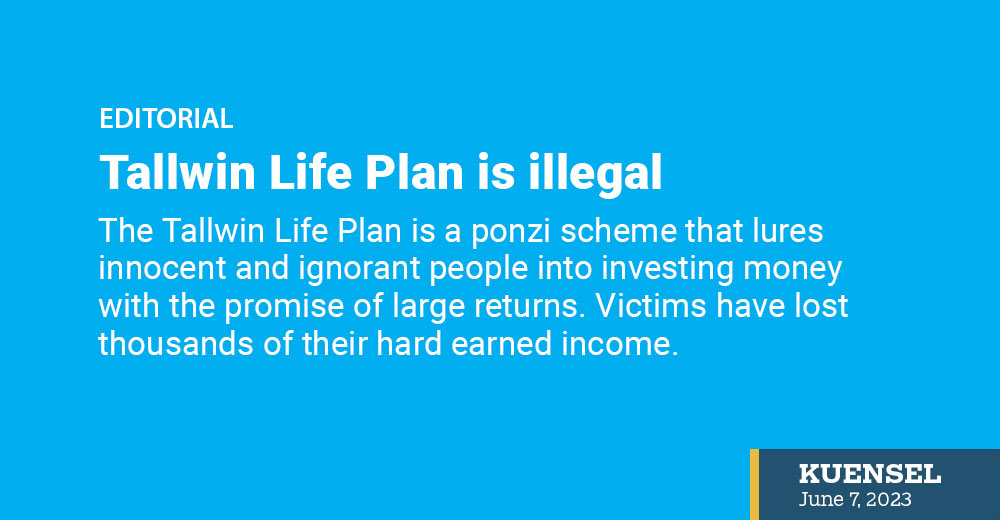In early January this year, just as a ponzi scheme called Tallwin Life Plan was making rounds among Bhutanese, some victims of the QNET ponzi scheme were running from pillar to post seeking help from different agencies. The victims had lost thousands of their hard earned income when the scheme crashed. Nothing happened.
Today, the Tallwin Life Plan is thriving from remote corners of Laya to far-flung villages in Samdrupjongkhar or in populated gewogs of central dzongkhags like Trongsa. There are many groups on social media adding new members to the scheme by the day. The illegal scheme is luring innocent and ignorant villagers, shopkeepers, civil servants, monks, and farmers into investing money with the promise of getting returns manifold.
Those driving the membership include affluent and spouses of prominent businesspersons and politicians. They coax and cajole women with financial difficulties to join the scheme to liberate themselves of such problems and enjoy ‘free life’. The group leaders boast as many as 300,000 have joined them.
The Royal Monetary Authority (RMA) has cautioned against schemes repeatedly. The problem with official notifications is that they don’t become viral and reach most of the people living in the far-flung areas as opposed to these illegal schemes. Without access to right information, they had been easily lured to invest in the scheme by influential people and friends. However, there is a glimmer of hope as the authority freezes accounts of promoters and pursues investigations against these individuals. It’s high time we hold these fraudsters to account.
We have seen many such schemes in the past and Tallwin will not be the end. There will be more lucrative schemes or convincing ideas that scammers would resort to. A simple way to avoid being scammed is being mindful. How can one win a lottery when you have not bought one! How can a mobile number be picked as the winner of a million dollar “lucky draw”? We can only be lucky if we are cautious and not driven by the greed of ‘easy and quick money’.
As smart phones and internet penetrate the nook and corners of our country, many could fall victim to digital frauds or social media viral scams. Being information-literate could help to a large extent. Technology has enabled fraudsters to reach the masses and they are always a step ahead. What could help today is making our people information-literate. So far it has been a question of who will do that?


